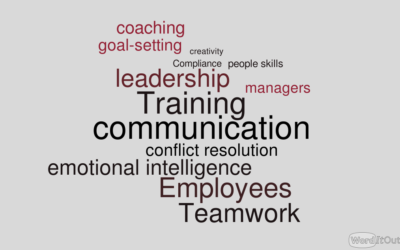Do you remember your first day of work? Do you recall the excitement and hope you felt as you met your coworkers and sat down at your desk or started to learn your role?
A positive onboarding experience can set a solid foundation for new hires, especially recent high school and college graduates. Consider the following aspects of onboarding and decide what you can implement for your new team members.
Statistics show that 30% of employees leave within their first 90 days of employment, so it is crucial to get them started right and to give close support for those first few months until they are acclimated.
Begin With Empathy
An overarching strategy to use is to put yourself in the place of your new hire. Consider their background, work history, and any socio-economic differences that may affect their employment and adapt your onboarding process to what may work best for them. This empathetic approach can begin in the interview process as you get to know your candidate and what they need from
their employment experience.
Before The First Day…
Communication is key. Send your new hire a personalized welcome email, providing your contact information and company background information. Create a detailed schedule for them to follow on the first day, and pass along specific instructions on where to park and how to enter
the building if working in-person. Share dress code details and/or maybe what you and your other coworkers wear to work each day.
Pair the new staff member with a mentor for early support and guidance and introduce the two in person or via email. Make plans to take them to lunch on their first day or have their mentor take them out for lunch with company funds.
Prepare the new employee’s workspace, ensuring all personal belongings from their predecessor are removed, and important files are easily accessible. Work with your IT department to establish an email address for your new hire, along with the appropriate updated hardware and software.
First Day and Beyond
Arrive early to welcome your new staff member and show them to their workspace. Give them some time to settle in before you begin introducing them to the rest of the team.
Provide a complete tour of the facilities, beginning with the restrooms and including the break room, staff lounge areas, conference rooms, and key departments.
Allow time for the new hire to engage with their mentor and encourage them to ask questions of you or their mentor. Provide opportunities for them to shadow various departments and get to know other members of the team.
Tailor your onboarding to include video training, reading, in-person learning, and hands-on experiences. Provide early positive feedback when possible so they clearly understand the types of work and behavior that is expected in your workplace.
Pause regularly to ask them how they are doing and if they have any questions. Ask them questions about their own learning and work experiences and invite their input on projects at opportune times.
Keep in mind that the onboarding process lasts well beyond the first day of initial orientation. It can extend into days, weeks, or even months, with continuous training, events, and mentorships.
Specific Guidance for Recent Grads
As a professor at Ball State University, I have the privilege of getting to know students who are approaching graduation. Here are some recommendations for onboarding new grads:
-Provide daily and weekly feedback to these workers.
-Offer opportunities for skill development and highlight career paths within the company.
-Schedule regular meetings where your newly hired grad can ask questions and assure them “there are no dumb questions.”
-Gain an understanding of their professional goals and support them in these endeavors.
By intentionally onboarding new staff, you will foster a culture of hospitality and help each team member feel welcomed. This approach will encourage dedication and retention, helping you maintain a stable and effective workforce.
Do you know other companies who struggle with onboarding? I’m available to speak to professional and trade organizations about this and other HR-related topics.






